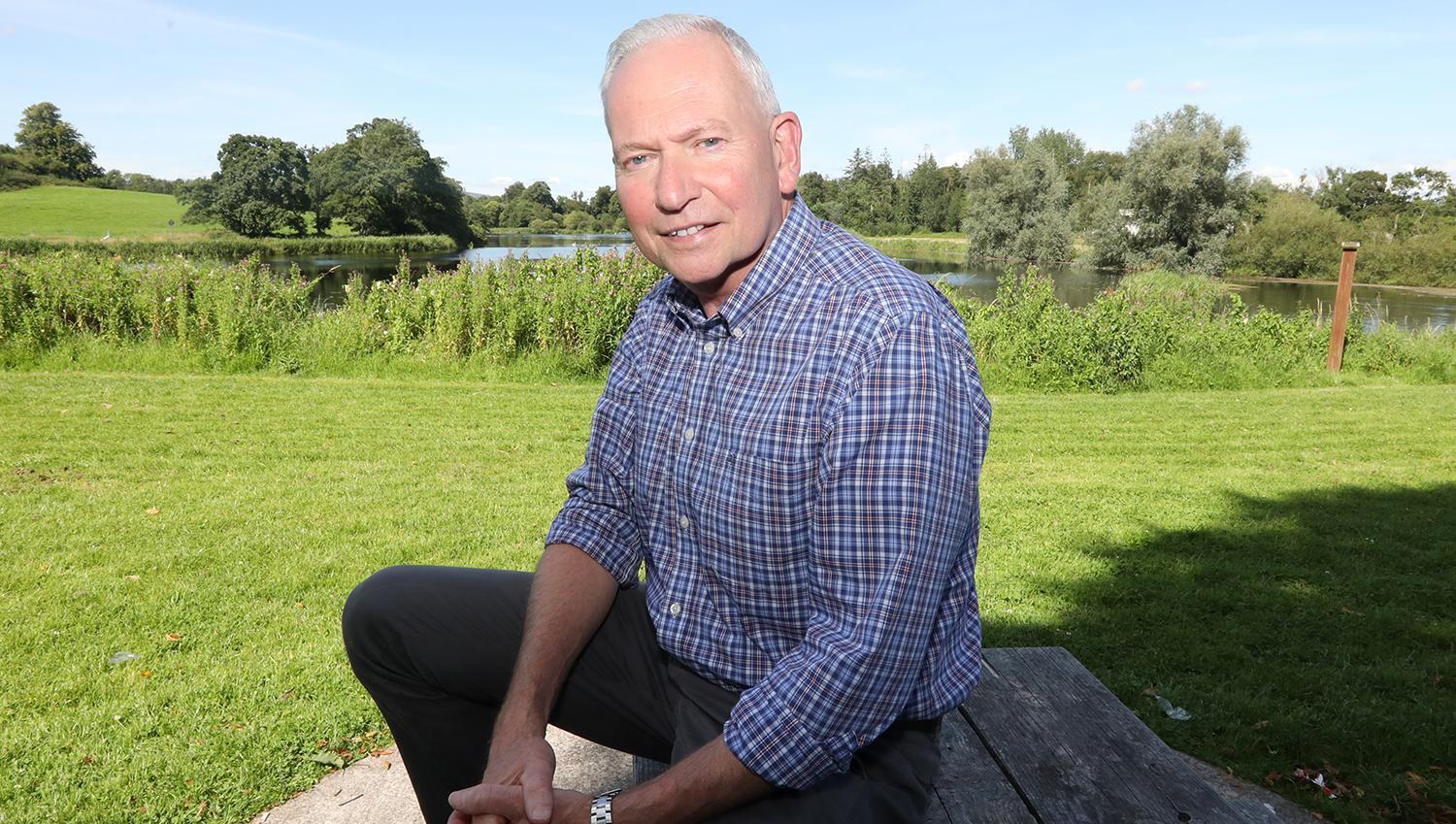Health
Early Detection Saves Lives: One Man’s Battle with Throat Cancer

A lump in the throat led to a life-changing diagnosis for 58-year-old Mike Freeney. In 2022, Freeney noticed a small lump that made swallowing feel different, prompting him to seek medical advice. His experience highlights the critical importance of early detection in the fight against head and neck cancer, a disease that sees nearly 800 new diagnoses annually in Ireland, according to the 2024 National Cancer Registry Report.
Head and neck cancers encompass various types, including cancers of the mouth, throat, larynx, salivary glands, nasal cavity, sinuses, and middle ear. Alarmingly, more than two-thirds of patients receive a diagnosis at an advanced stage, resulting in a five-year survival rate of only 48%. Professor Sinéad Brennan, a radiation oncologist at St Luke’s and St James’s Hospitals in Dublin, emphasizes the need for increased awareness of early warning signs. She states, “Through prevention and early detection, we could prevent so many more people from dying of head and neck cancer.”
Symptoms such as a persistent lump in the throat, difficulty swallowing, or ongoing hoarseness lasting three to four weeks should prompt a visit to a general practitioner, according to Professor Brennan. Freeney’s journey began with a visit to his doctor, following his wife’s observation of a crackling sound in his breath and his own struggles to keep pace during runs.
After a series of blood tests, CAT, PET, and MRI scans, Freeney received a diagnosis of throat cancer. He underwent an extensive treatment regimen, including 35 sessions of radiation at Mater Private in Limerick and six sessions of chemotherapy at University Hospital Limerick. The treatment was physically demanding, rendering him unable to speak for three weeks—a challenging experience for someone accustomed to a lively social life.
Eating also became a struggle due to painful sores caused by radiation. For weeks, Freeney subsisted on high-calorie shakes, and he now faces lasting changes to his taste buds. “I used to like chocolate, but now I think it tastes horrible,” he shares. Even now, he requires gravy or sauce to eat dry foods comfortably.
The side effects of radiation extended beyond taste. Freeney experienced stiffness and soreness in his muscles, requiring him to work with a cancer rehabilitation physiotherapist. Scans post-treatment indicated that the throat cancer had disappeared, but a year later, a new cancerous growth was discovered on his spine, leading to additional radiation therapy.
As of August 2024, Freeney has received treatment for cancerous nodules found in his lungs and spine and reports that he is currently stable. Nevertheless, the physical and psychological impact of his cancer experience lingers. He often deals with pain in the treated areas and attends ongoing physiotherapy and yoga classes to help manage it.
“Especially if I’m lying awake at night,” he reflects, “I can’t help but worry” about the possibility of cancer returning. Awaiting scan results heightens his anxiety, but he has found solace in counseling at the oncology support centre in UHL. “I tell myself that it’s not necessarily a death sentence if the cancer comes back,” Freeney says, emphasizing the importance of maintaining a healthy lifestyle through diet and exercise.
Professor Brennan points out that certain preventive measures can significantly reduce the risk of head and neck cancers. The human papillomavirus (HPV) is a known contributing factor for some types, particularly those affecting the tonsils or back of the throat. The National Cancer Registry reports approximately 200 cases of HPV-related cancers annually. The HPV vaccine, administered to students in their first year of secondary school, can help protect against these cancers as well as others, including cervical and anal cancers.
Freeney, now focused on the positive aspects of his cancer journey, encourages others to listen to their bodies and advocate for their health. “Ask questions and don’t stop asking them until you get proper answers,” he advises. He has shifted his focus from ultra-running to cycling, embracing new challenges while cherishing the life lessons learned through his health struggles.
The message from both Freeney and Professor Brennan is clear: early detection and proactive health management are crucial in the fight against head and neck cancer.
-

 Top Stories3 months ago
Top Stories3 months agoTributes Surge for 9-Year-Old Leon Briody After Cancer Battle
-

 Entertainment4 months ago
Entertainment4 months agoAimee Osbourne Joins Family for Emotional Tribute to Ozzy
-

 Politics4 months ago
Politics4 months agoDanny Healy-Rae Considers Complaint After Altercation with Garda
-

 Top Stories4 months ago
Top Stories4 months agoIreland Enjoys Summer Heat as Hurricane Erin Approaches Atlantic
-

 World5 months ago
World5 months agoHawaii Commemorates 80 Years Since Hiroshima Bombing with Ceremony
-

 Top Stories3 months ago
Top Stories3 months agoNewcastle West Woman Patricia Foley Found Safe After Urgent Search
-

 Top Stories5 months ago
Top Stories5 months agoFianna Fáil TDs Urgently Consider Maire Geoghegan-Quinn for Presidency
-

 World5 months ago
World5 months agoCouple Convicted of Murdering Two-Year-Old Grandson in Wales
-

 World5 months ago
World5 months agoGaza Aid Distribution Tragedy: 20 Killed Amid Ongoing Violence
-

 World5 months ago
World5 months agoAristocrat Constance Marten and Partner Convicted of Infant Murder
-

 Top Stories4 months ago
Top Stories4 months agoClimbing Errigal: A Must-Do Summer Adventure in Donegal
-

 Top Stories4 months ago
Top Stories4 months agoHike Donegal’s Errigal Mountain NOW for Unforgettable Summer Views









